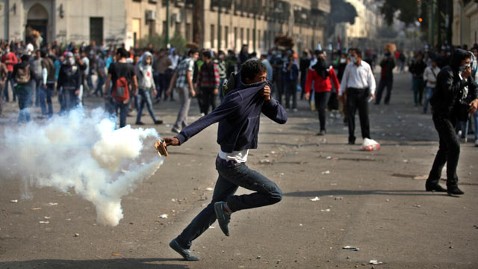UNITED NATIONS: The United States on Wednesday pressed Palestinian president Mahmud Abbas not to seek elevated UN status, but Abbas remained on course to win a new show of international support.
Abbas will make the Palestinian case for "non-member observer state" status and indicate his conditions for talks with Israel in a speech to the UN General Assembly on Thursday, officials said.
He is guaranteed an overwhelming victory in the 193-nation assembly even though the United States and Israel fiercely oppose the move and other major powers have their doubts.
US Deputy Secretary of State William Burns and Middle East envoy David Hale met with Abbas at his hotel on Wednesday but failed to get the Palestinian leader to withdraw his resolution or make amendments, officials said.
"It would be like changing my name," Palestinian foreign minister Riyad al-Malki told reporters when asked if the Palestinians were ready to change their request to the United Nations.
"We went up to make one more try to make our views known to President Abbas and to urge him to reconsider," US State Department spokeswoman Victoria Nuland said in Washington.
A host of ministers and top diplomats followed the US officials in meetings ahead of the landmark vote. Abbas had lunch with Turkey's Foreign Minister Ahmet Davutoglu, who pledged his country's support.
Success will give the Palestinians access to UN agencies and treaties and allow them to apply to join the International Criminal Court (ICC) -- a prospect which worries Israel.
Palestinian officials say they are confident of getting two-thirds of the UN membership to back them. After France announced it would vote in favor, Spain, Norway, Denmark and Switzerland also said they would follow.
Britain announced however that it would abstain unless the Palestinians committed not to seek an ICC case against Israel and pledged an immediate return to negotiations with Israel. Germany said it would not support the resolution, but left open whether it would abstain or oppose the bid.
Diplomats from several European countries, including some backing the bid, have said they believe the Palestinians should have waited until US President Barack Obama had installed his new administration and the Israeli election had been completed.
Senior Palestine Liberation Organization official Hanan Ashrawi said Abbas has resisted "intensive pressure" to make concessions on the ICC. Palestinian envoys have said Abbas will not rush to join the ICC but could use the court if Israel does not change its attitude.
The United States has led opposition to the resolution as it has blocked the application for full membership of the United Nations that Abbas made to a fanfare welcome at the UN General Assembly in September 2011.
The United States and Israel say a Palestinian state can only emerge from bilateral negotiations which have been frozen since September 2010.
State Department spokeswoman Nuland warned "that no one should be under any illusion that this resolution is going to produce the results that the Palestinians claim to seek, namely to have their own state, living in peace next to Israel."
UN agencies that admit the Palestinians and the Palestinian Authority could lose hundreds of millions of dollars in financing because of the vote. US law prohibits funding for any international body that recognizes a Palestinian state.
Washington has warned Abbas he risks losing around $200 million in development aid which is currently blocked in the US Congress.
Israel has been weighing countermeasures such as potentially freezing the transfer of tax and tariff funds it collects on their behalf, while some ministers have raised the idea of cancelling the 1993 Oslo peace accords.
And a foreign ministry policy paper even suggested "toppling" the Palestinian Authority.
But a ministry spokeswoman said Israel would most likely not take any punitive measures -- unless the Palestinians used the upgrade "as a platform for confrontation".
"Israel's reaction to the Palestinian move depends on what they choose to do. If they use this resolution as a platform for confrontation, we will have to act accordingly," said Ilana Stein in reference to any move at the ICC.
-AFP/ac










